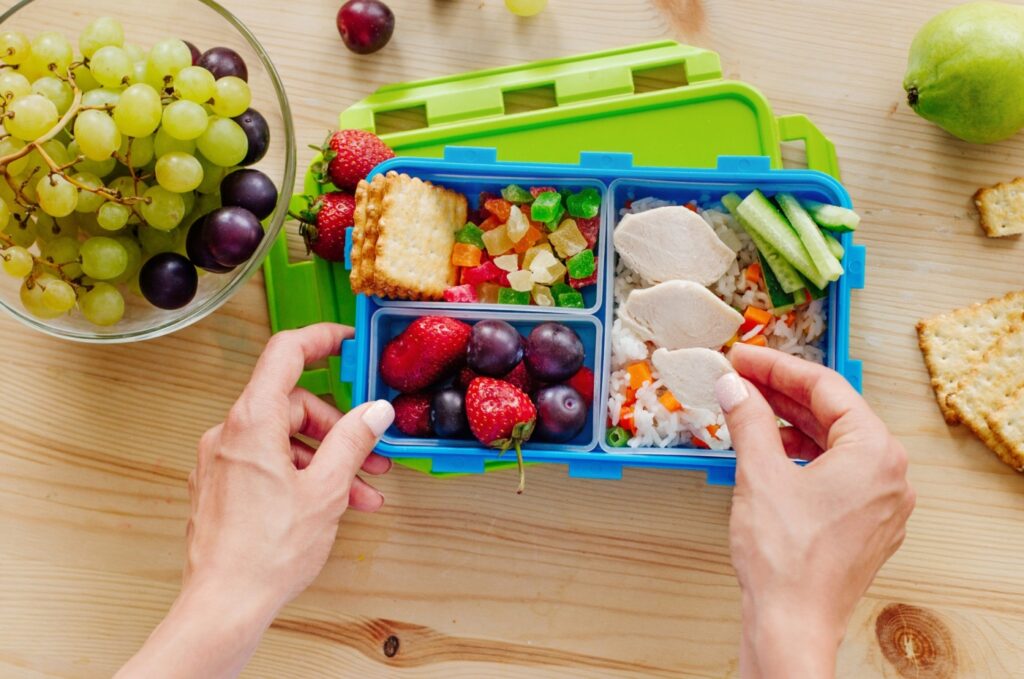
Summer has flown by and it is time to head back to school and work. With back-to-school season comes a return to earlier mornings and busier schedules. Making a plan for food and nutrition is key to a successful return to the classroom so kids can learn and thrive.
There’s no doubt that with summer break comes a change in routines that often results in less structured meals and overall disrupted eating habits. Sometimes not-so-ideal habits are created during the break. The transition to the new school year is an ideal time to build healthier eating habits and focus on setting some reasonable goals.
Nutrition is vital to children’s health and development. The benefits of nutrition include increased energy, improved focus and attention, better mood, bolstered immunity, reduced risk of illness and overall better well-being.
Here are some strategies to optimize nutrition this school year:
Skip the Sugary Drinks
It’s possible that sugar sweetened drinks have crept into your routine during summer travel, meals out or even while relaxing around the house. Water is the best drink and, ultimately, kids don’t need the added sugar from soda, fruit punch, energy drinks and other sugary beverages. Flavored sparkling tonics like Olipop, naturally flavored water and coconut water are some options for hydrating treats to offer occasionally.
Plan Healthy Snacks
If you have school-age kids or grandkids, you are well aware of the importance of afterschool snacks. Children are often quite hungry after school; however, excess snacking in the afternoon can derail a healthy appetite for dinner. Create a space in the pantry and refrigerator to stock healthful snacks for afterschool such as sliced fruit, string cheese, hummus, baby carrots, whole grain crackers and edamame. Create an afterschool snack plan so kids are clear on when and what to enjoy for snack time.
Brainstorm Breakfast Ideas
Caregivers and children alike understand the importance of eating breakfast; however, the biggest barrier to getting in the morning meal is usually a lack of time. Pre-planning breakfast options for the school week can help get breakfast on the table or out the door. Morning meals with protein and fiber can help kids feel full and satisfied longer, helping to fuel them until lunch.
Opt for nutrient-dense foods like whole grain cereal, oatmeal, fruit, eggs, yogurt, cheese, nuts and seeds, for example. Make ahead options like egg muffins, breakfast tacos and bran muffins can provide nutritious grab-and-go breakfast items for the whole family.
Related Articles
Nutrition: Why salting your food at the table may not be good for your health
Nutrition: It’s time to talk about irregularity
Focus on Family Meals
Participation in regular family dinners is associated with reduced rates of psychosocial issues including lower rates of depression, eating disorders and early teenage pregnancy. Plus, kids and teens who eat family meals benefit from improved self-esteem and better communication skills. A recent study in JAMA Pediatrics found that teens who eat dinner with their families, ideally four or more times per week, even report fewer problems with being bullied likely due to having the support of family members to help work out personal issues.
LeeAnn Weintraub, MPH, RD is a registered dietitian, providing nutrition counseling and consulting to individuals, families and organizations. She can be reached by email at RD@halfacup.com.
